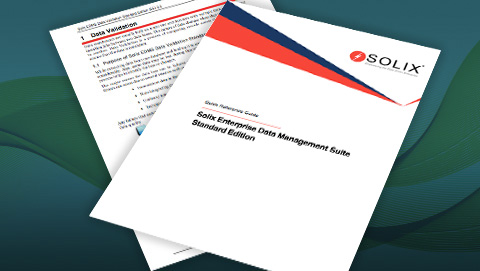PIPA BC
What is PIPA BC?
The Personal Information Protection Act of British Columbia (PIPA BC) is a Canadian provincial law regulating how organizations collect, use, and disclose personal information. It grants individuals rights to access, control, and correct their data. While similar to national data privacy laws like GDPR, PIPA BC focuses specifically on the province of British Columbia.
Overview of PIPA BC
- Law: Personal Information Protection Act of British Columbia
- Region: British Columbia
- Signed On: 27-11-2003
- Effective Date: 01-01-2004
- Industry: All industries that do business in British Columbia
Personal Data Under the PIPA BC
PIPA BC defines “personal information” quite comprehensively. It covers any information that can be used to identify an individual, alone or combined with other data. Here’s a breakdown of the type of personal information typically covered by PIPA BC:
- Basic Identifiers: Name, address, phone number, and email address
- Demographic Data: Date of birth, gender, marital status, and information about dependents
- Financial Information: Bank account numbers, credit card details, income information
- Health Information: Medical history, prescriptions, health insurance details
- Electronic Information: IP address, browsing history, cookies, or social media profiles
- Opinions and Beliefs: Political views, religious beliefs, personal opinions collected
Key Components of the PIPA BC
- Consent: PIPA emphasizes obtaining consent before collecting, using, or disclosing PII. Exceptions exist for specific situations.
- Data Protection Principles: Organizations must adhere to principles such as accountability, transparency, limitation of collection, and security safeguards.
- Individual Rights: Individuals can access, correct, and withdraw consent for their PII under certain circumstances.
Who Needs to Comply?
PIPA applies to any private or non-profit organization collecting, using, or disclosing personal information (PII) within British Columbia, regardless of size, location, or industry. This encompasses a wide range of entities, such as:
- Businesses: Large corporations, small shops, and even home-based businesses must comply with PIPA if they handle PII during their operations.
- Professional service providers: Lawyers, accountants, consultants, and other professionals who hold client PII fall under PIPA’s scope.
- Non-profit organizations: Charities, associations, and non-profits collecting member or volunteer information must adhere to PIPA.
- Educational institutions: Schools, universities, and other educational institutions handling student and staff PII are accountable under PIPA.
- Healthcare providers: Hospitals, clinics, and other healthcare providers managing patient information are subject to PIPA’s requirements.
Even if an organization only occasionally processes PII within British Columbia or through third-party service providers, it remains responsible for PIPA compliance.
Exceptions to the PIPA BC
- Individuals acting in their capacity: PIPA applies to organizations, not individuals using PII for personal or domestic purposes.
- Federal government agencies and Crown corporations: These entities have separate privacy legislation outside of PIPA.
Noncompliance Fines
- Data Access: Individuals can access and correct the data held by covered entities.
- Data Portability: Individuals have the right to receive their data in a portable format and transmit it to another controller.
- Right to Erasure: Individuals have the right to remove their data under specific conditions.
NYDFS provides heightened safeguards for children’s data, requiring institutions to secure verifiable parental consent before collecting or processing information on those under 16. Additionally, individuals outside New York still retain the right to access and rectify their data, provided the institution conducts business within the state.
Who Needs to Comply?
The New York Department of Financial Services (NYDFS) regulation applies to a broad range of financial institutions operating in New York like State-chartered banks, Trust companies, Mortgage bankers, Lenders (including licensed lenders, money transmitters, and licensed mortgage loan originators), Insurance companies (including life, accident, health, and property & casualty insurers), Fiduciaries (including money transmitters and licensed cashers), Foreign banks licensed to operate in New York.
Significantly, NYDFS extends its reach beyond these core entities to include their third-party service providers who handle sensitive data.
Exceptions
- Individual Offenses: Up to $10,000 for individuals who violated PIPA.
- Organizational Offenses: Up to $100,000 for a first offense and up to $300,000 for a second offense.
Compliance Authority of the PIPA BC
The Office of the Information and Privacy Commissioner of British Columbia (OIPC) oversees and enforces PIPA. The OIPC provides guidance and resources, investigates complaints, and enforces compliance.
In conclusion, understanding and complying with PIPA is essential for organizations operating in British Columbia to protect individuals’ privacy rights and avoid costly penalties. Organizations can safeguard sensitive personal information and maintain compliance with PIPA and other data privacy regulations by implementing robust data security solutions, including data masking.
FAQ
PIPA BC applies to businesses. Does it cover how employers handle employee data?
PIPA BC applies to employee information but with some exceptions. Employers generally need consent to collect, use, or disclose personal information about employees beyond what’s necessary for employment purposes. However, PIPA allows some exceptions for activities like payroll or performance reviews.
Does PIPA BC apply to how political parties handle my information?
Political parties in British Columbia are generally exempt from PIPA. However, specific rules govern how they collect, use, and disclose personal information during elections.





